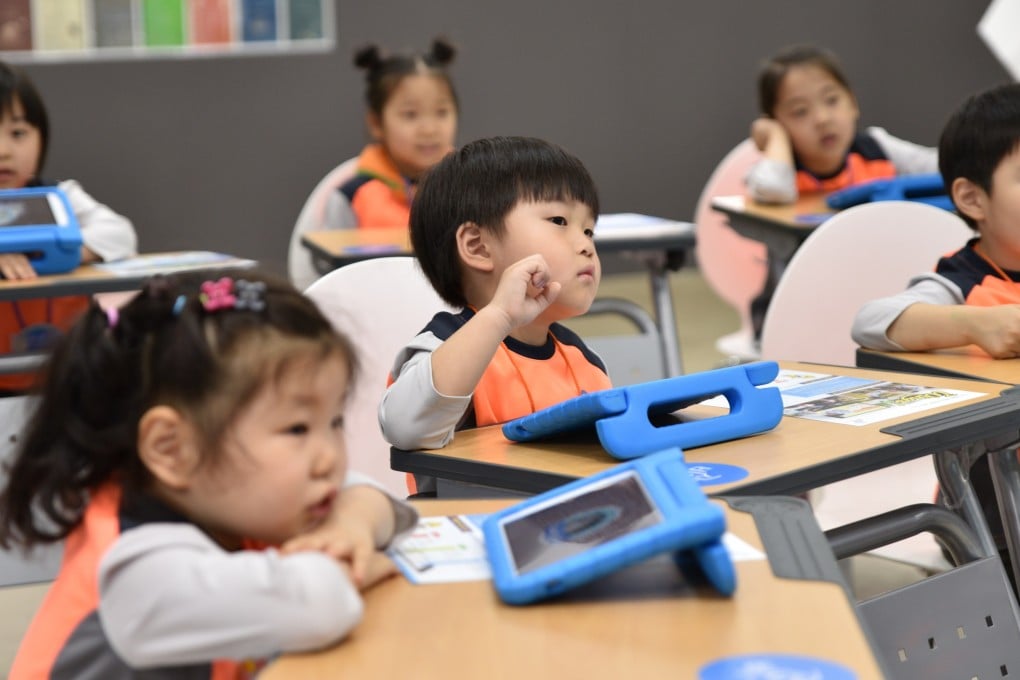In South Korea, crushing academic pressures start in kindergarten: ‘it’s very worrying’
Forget play dates – in some parts of Seoul, four-year-olds are already training for the notorious Suneung college entrance exam

In one of Seoul’s wealthiest districts, four-year-olds are being drilled to write five-paragraph English essays in 15 minutes.
Entrance exams featuring questions more suited to secondary school students are not uncommon in the elite kindergartens of Daechi-dong, an affluent neighbourhood in Seoul’s Gangnam district often dubbed South Korea’s “education capital”.
For parents, securing a spot for their child at one of these kindergartens offers a crucial advantage in the fierce competition for admission to the country’s top three universities – collectively known as “SKY”. A degree from one of these prestigious institutions is in turn widely seen as a golden ticket to social prestige, stable careers and lifelong success.

Choi Myung-hee, a professor of early childhood education at Shingu College with decades of experience in the ultra-competitive sector, traces the roots of the phenomenon to the rise of overbearing “helicopter parents” who are hypervigilant about their children’s success. These parents, born in the 1960s and 1970s, experienced South Korea’s rapid development and now channel their anxieties into securing their children’s futures.